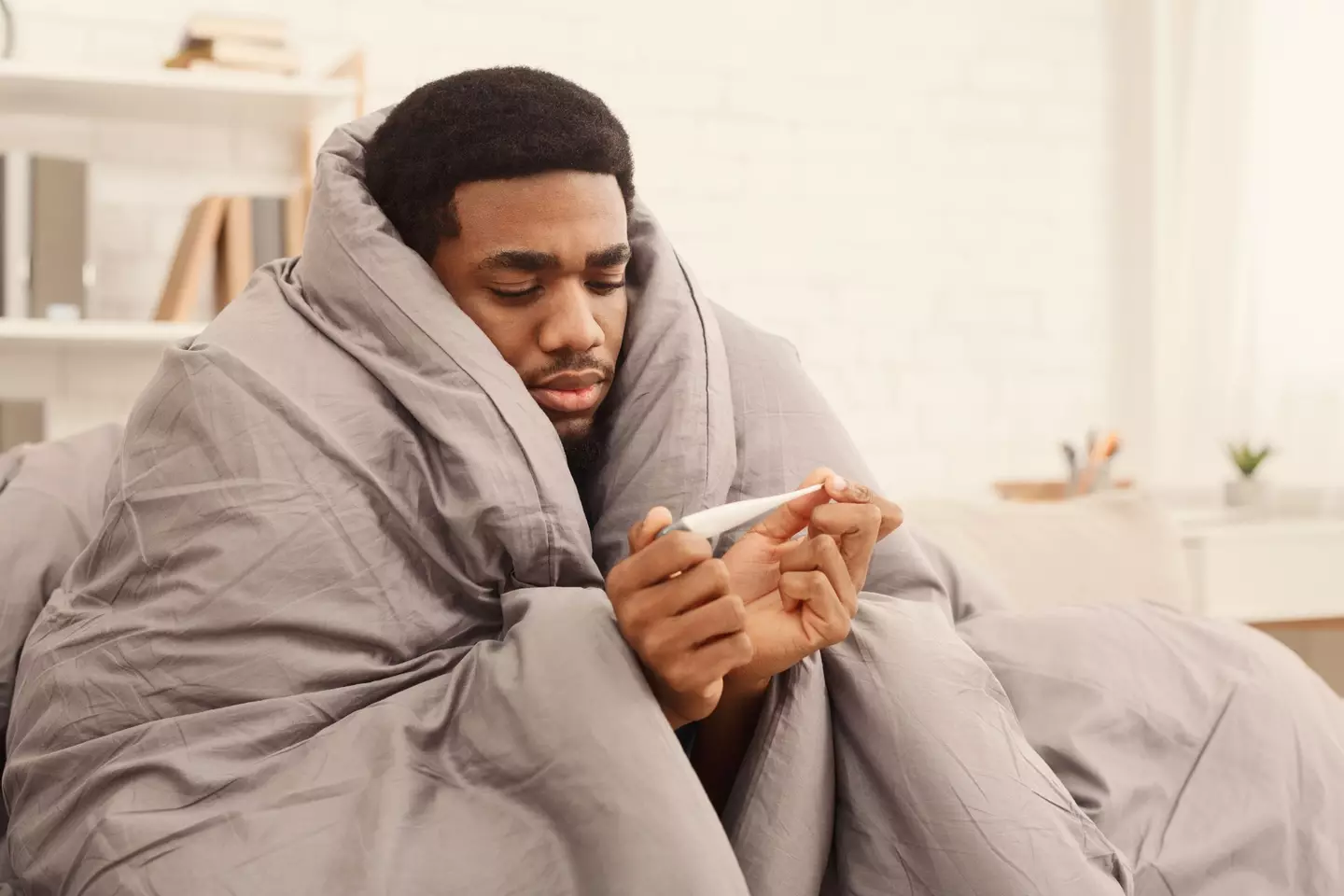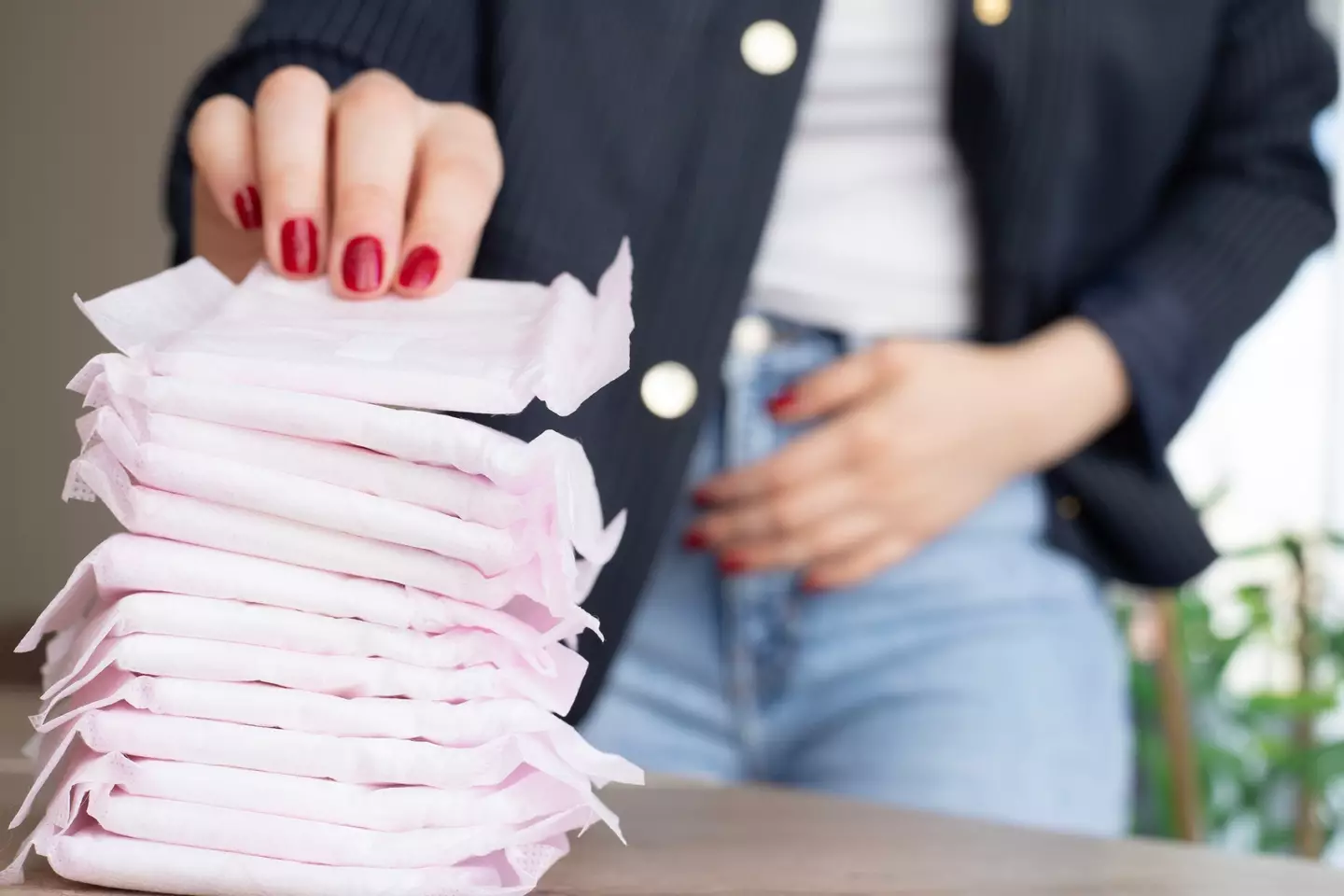
We're all guilty of ramping up the theatrics when we're ill, especially when struck down by something as gruesome as the flu.
Yet, it's become somewhat of a cultural joke that men seem to be hit harder when unwell - or at least, that's how they act.
For some, a blocked nose somehow renders them completely immobile, while women, on the other hand, seem to soldier on with a Lemsip and a to-do list.
Of course, everyone reacts differently to health flare ups - and yes, I know plenty of women who can out-dramatize the men, so hold the sexism complaints.
Advert
Anyway, taking to Instagram, one doctor decided to settle the debate once and for all.
Known as Dr Joe, the ER professional responded to a Reel of a woman, Caroline comparing her and her boyfriend, Jake's, response to being unwell with the flu.
While Caroline was up and managing to stomach food, Jake appeared stuck in bed, struggling to make it up.
Dr Joe explained the stark differences between how the two sexes bodies respond to a viral infection.

He noted that estrogen in women boosts the immune system and helps fight off infections, while testosterone in men actually lowers their immune system slightly.
What's more, is that men tend to 'produce more inflammatory cytokines' when fighting off a virus, making them feel more achey, more tired and just generally worse off.
Women, Dr Joe added are more 'used to pushing through' when it comes to periods and childbirth.
"It doesn’t mean men suffer more - it just means the experience of being sick can feel different," he concluded.
Well, according to the health bigwigs at Harvard Health Publishing, more research needs to be carried out to better understand men and women's responses to being ill.
But, studies carried out so far seem to indicate that 'man flu' isn't just men being dramatic.

As Harvard reports, women generally have stronger immune systems, so their bodies respond more powerfully to vaccines and infections.
This means women may build up better protection after a flu shot.
Men, especially those with high testosterone levels, tend to have a weaker antibody response, so their vaccine may not work as well, making them more vulnerable.
As Dr Joe said, female hormone estrogen seems to reduce inflammation caused by the flu - at least in lab studies with nasal cells, that is.
This might mean fewer symptoms or a milder illness for women.
Elsewhere, studies have shown that men are more likely to be hospitalized with the flu, and in some cases, men also have a higher death rate from flu compared to women.
In other surveys, men reported taking twice as long to feel better after the flu; three days versus 1.5 days for women.
One theory is that men might have evolved to rest more during illness, maybe to save energy or avoid danger while feeling weak.
Today, that might look like staying in bed and asking someone to make them soup. (We’ve all been there).
No matter your sex, Harvard Health recommends getting vaccinated each year, washing your hands regularly and staying home when you're sick to avoid spreading your germs.
Topics: Health